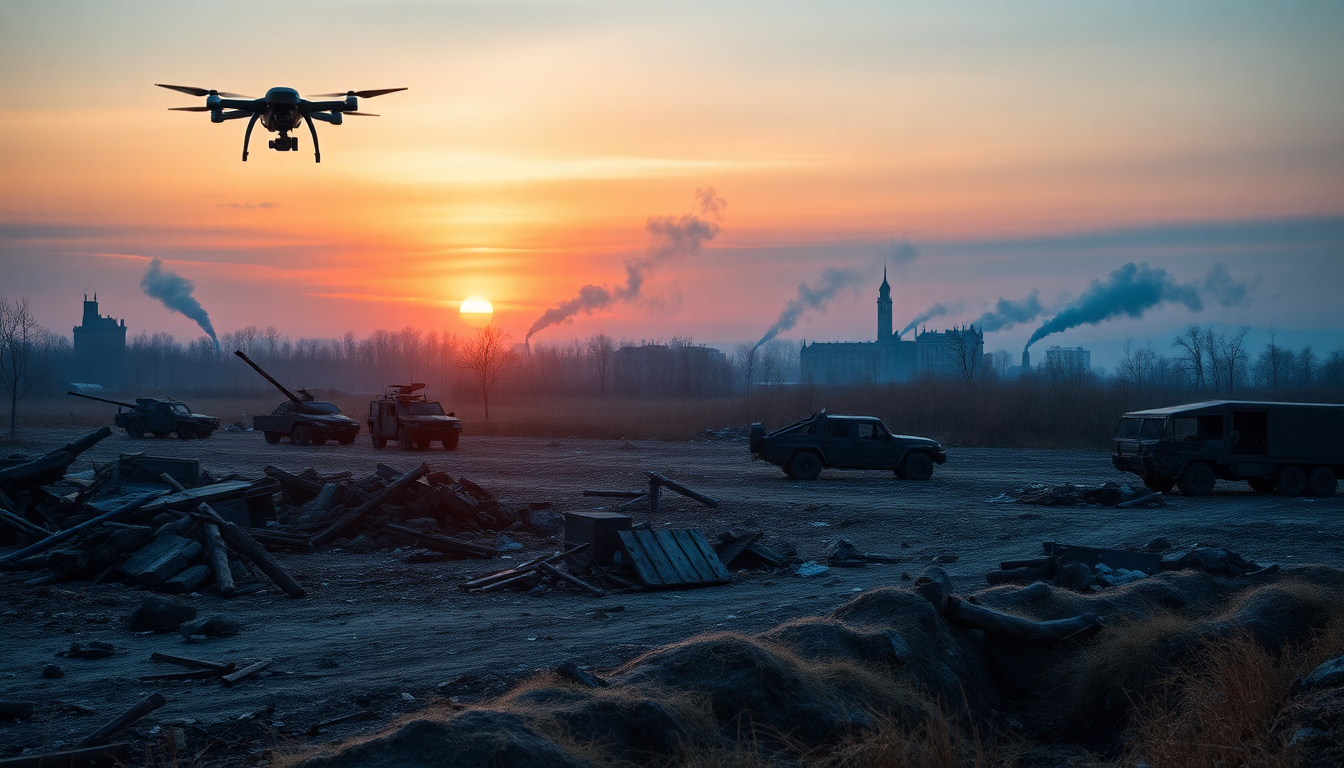Table of Contents
The conflict between Ukraine and Russia is unfolding in real-time, and it’s hard to keep up with the rapid developments. Just recently, Ukraine took a bold step by targeting a Russian air base, pushing the limits of this ongoing struggle. But what does this escalation mean for military power, international relations, and the prospects for peace in the region? Let’s dive in.
Recent Military Developments
This past Saturday, Ukraine’s military made headlines by confirming a strike on the Borisoglebsk air base, nestled in Russia’s Voronezh region. This base is crucial for Russian fighter jets like the Su-34, Su-35S, and Su-30SM. But this wasn’t just a show of strength; it was a strategic move designed to weaken Russia’s military assets, specifically targeting a depot stocked with glide bombs and other aircraft. With such operations, Ukraine is proving it can reach deep into Russian territory, potentially shifting the strategic balance in this conflict.
In retaliation, Russia ramped up its aerial bombings across Ukraine, launching over 300 drones in just one night. This increase in attacks signals a significant escalation in Russia’s military offensive. While the Ukrainian air force intercepted many of these drones, the sheer volume points to a deliberate strategy by Russia to overwhelm Ukraine’s defenses, especially in regions like Khmelnytskyi. How long can Ukraine hold its ground against such intense pressure?
The Impact of International Relations
The plot thickens when we consider international relations. Recently, Ukrainian President Volodymyr Zelenskyy spoke with U.S. President Donald Trump, discussing ways to enhance Ukrainian air defenses and possibly collaborate on arms production. This collaborative approach shows a united front against Russian aggression. However, there’s a cloud of uncertainty regarding U.S. military aid, with reports of some shipments being paused, hinting at a potential shift in the support Ukraine can expect from its allies. How will this impact Ukraine’s defense strategy moving forward?
As Ukraine looks to strengthen its domestic arms industry in light of these uncertainties, it faces a significant challenge: scaling up production capabilities takes time. This delay could affect Ukraine’s readiness as it continues to fend off Russian attacks. What will it take for Ukraine to maintain its military momentum amidst these challenges?
Future Prospects and Challenges
As we look ahead, both Ukraine and Russia are grappling with major hurdles. For Ukraine, it’s all about maintaining military momentum and securing international backing. The recent strikes on Russian air bases demonstrate a strategic effort to weaken Russia’s military capabilities, but ongoing tactical and logistical support will be essential to sustain this push.
On the flip side, Russia must reevaluate its military strategy under increasing international scrutiny and potential backlash from its aggressive actions. The targeting of civilian areas raises serious ethical concerns and could lead to further diplomatic isolation for Russia. Can they navigate these challenges without losing their grip on the situation?
The future of this conflict is still up in the air, with both sides firmly entrenched in their positions. One thing is clear: military actions will continue to shape the war’s trajectory, and the international community’s response will be crucial in determining how this all plays out. What do you think the next steps will be for both sides?


